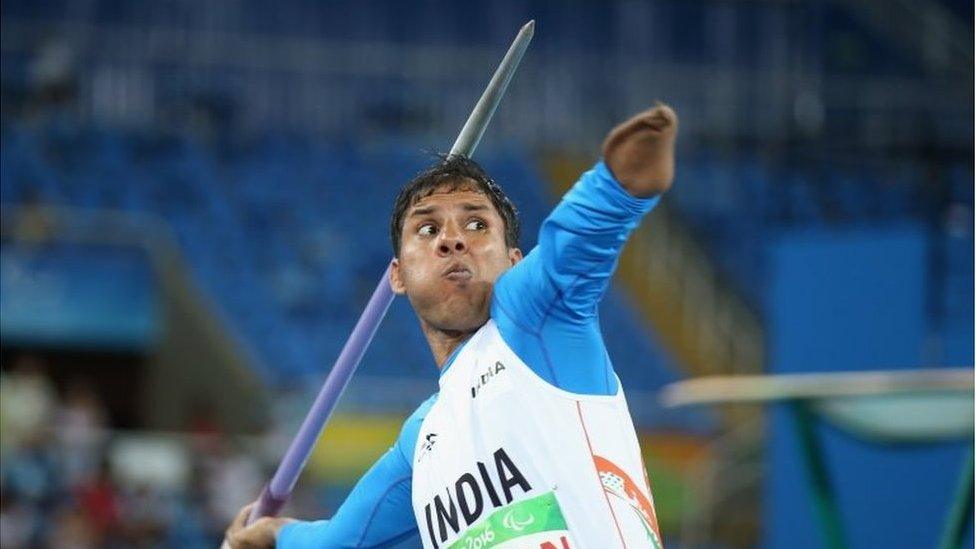The Indian archer without arms shooting for a gold
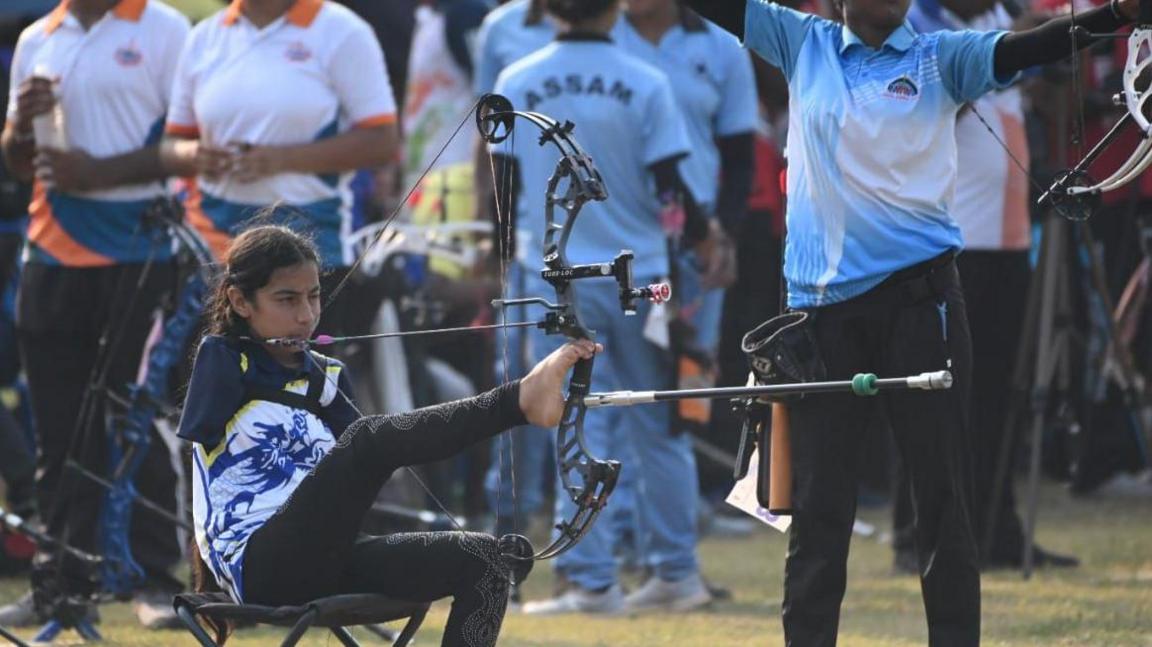
Sheetal Devi, 17, is determined to win a gold for India at the Paralympics
- Published
Archer Sheetal Devi picks up her bow, loads an arrow and carefully aims at her target, about 50m (164ft) away, with a look of immense focus on her face.
So does her opponent, who is playing a practice game with her at a training academy in India.
The difference is that Devi is seated on a chair. She raises the bow with her right leg, pulls back the string using her right shoulder and releases the arrow using the strength of her jaw.
What never changes throughout this process is Devi’s calm demeanour.
The 17-year-old from Jammu district was born with phocomelia, a rare congenital disorder, making her one of the few female archers to compete without arms.
The Asian Para Games gold medallist is now gearing up for the Paralympics, which begin on 28 August in Paris.
"I am inspired to win the gold," Devi said. “Whenever I see the medals I have won [until now], I feel inspired to win more. I have only just started."
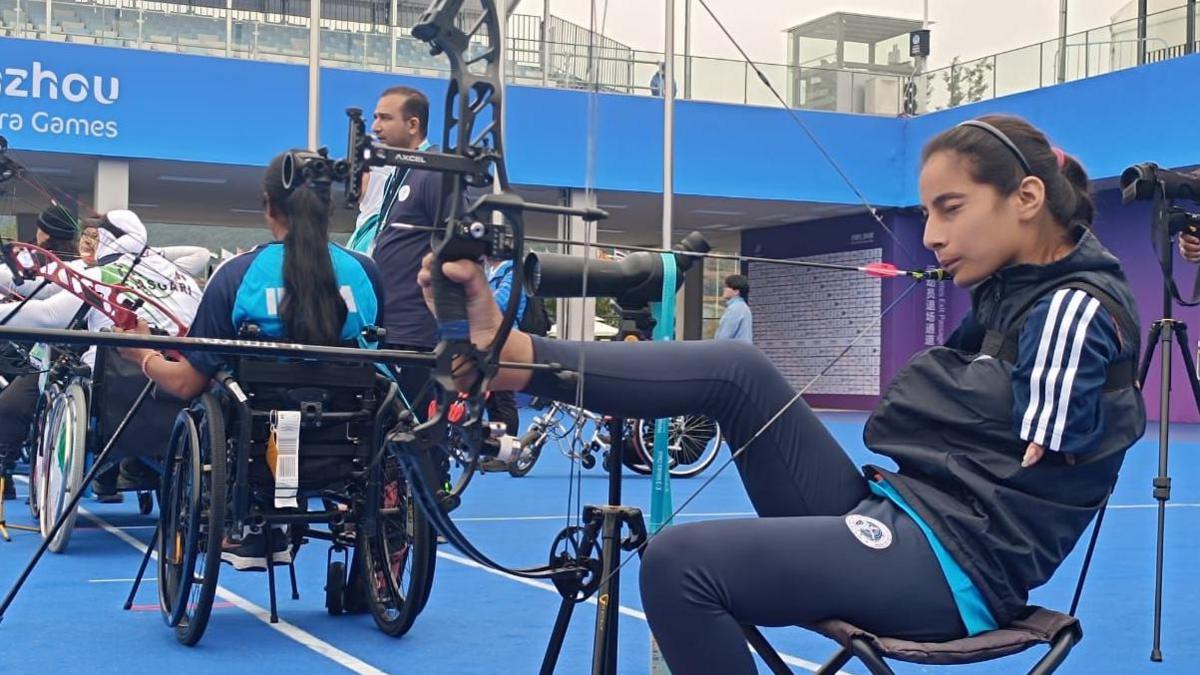
Devi was born with phocomelia, a rare congenital disorder
Around 4,400 athletes from across the world will take part in 22 sports at the Paralympics this year.
Archery has been a part of the Games since the inaugural edition in 1960. While countries such as Great Britain, USA and South Korea have dominated the medal count, India has accounted for a solitary bronze medal across 17 editions.
Para-archers are grouped into categories depending on the severity of their impairment.
The distances they have to shoot also differ based on the classification system, which then determines whether an archer can use assistive devices such as wheelchairs and release aids.
Archers competing in the W1 category are wheelchair users with impairment in at least three out of the four limbs with either a clear loss of muscle strength, coordination or range of movement.
Those competing in the open category have an impairment in either the top or bottom half or one side of their bodies and use a wheelchair, or have a balance impairment and shoot standing or resting on a stool. Competitors use either recurve or compound bows, depending on the event.
Devi is currently ranked first in the world in the compound open women's category.
In 2023, she won a silver at the Para-Archery World Championship, which helped her qualify for the Paris Games.
At Paris, she will face tough competition from opponents including world number three Jane Karla Gogel and the reigning World Championship winner Oznur Cure.
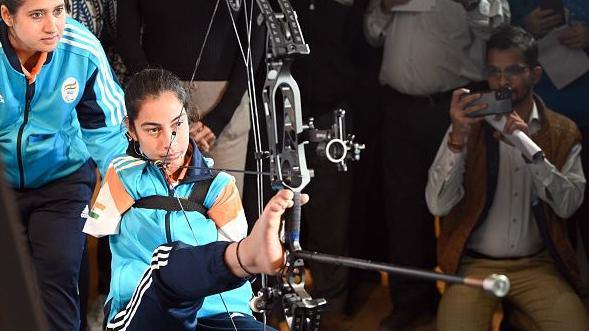
Devi is a gold medallist at the Asian Para Games
But those who know her say she was destined to play the sport - and win.
“Sheetal [Devi] did not choose archery, archery chose Sheetal,” says Abhilasha Chaudhary, one of Devi’s two national coaches.
Born in a small village to a farming family, Devi had not seen a bow and arrow till she was 15.
The turning point came in 2022 when she visited the Shri Mata Vaishno Devi Shrine Board sports complex in Jammu's Katra - about 200km (124 miles) from home - on the recommendation of an acquaintance.
There, she met Chaudhary and her other coach, Kuldeep Vedwan, who introduced her to the world of archery. She soon shifted to a training camp in Katra city.
The coaches said they were fascinated by Devi's grit.
The challenge was monumental, but their vision - to make the most of the strength in Devi’s legs and upper body - eventually prevailed.
Devi said the strength came from years of using her feet for most activities, including writing and climbing trees with her friends.
Yet, her decision to try a career in archery did not come without its doubts.
“I felt this was impossible,” she said. "My legs used to ache a lot but somehow I did it."
In her low moments, Devi would take inspiration from American archer Matt Stutzman, who famously shoots with his feet using a customised device.
Devi's family could not afford a similar machine, so her coach Vedwan took it upon himself to create a bow for her.
He used locally-sourced materials and customised it as per her needs at a local forge shop.
The gear includes an upper-body strap made from materials used in bag belts and a small instrument which Devi holds in her mouth to help release the arrow.
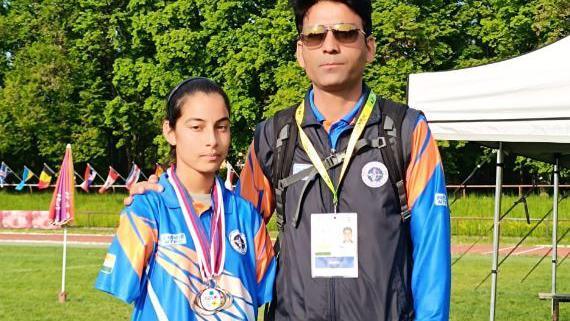
Devi's coach Kuldeep Vedwan created a customised device to help her play
The real challenge, however, was to figure out how to use more than just her legs to form a well-rounded, sustainable technique.
“We had to manage how to balance the strength in her legs, modify it and use it technically," Chaudhary explains. "Devi has strong legs but we had to figure out how she would use her back to shoot."
The trio then committed to a measured training routine, which began with Devi using a rubber band or TheraBand instead of a bow, to aim at targets placed at just a 5m distance.
As her confidence grew, so did the level of difficulty, and within just four months of starting out, she began to use a proper bow and hit targets at a 50m distance, the competition standard for the compound open category.
Within just two years, Devi went from learning to simply shoot an arrow at small distances to hitting six 10s in a row in the final of the women's individual compound event at the Asian Para Games in 2023 to win the gold medal.
For context, 10 is the maximum number of points a player can win for a single shot by hitting the bullseye on the target board.
“Even when I shoot a nine, I’m only thinking about how I can convert that into a 10 on the next shot,” Devi said.
It's not just about hard work - there were also sacrifices along the way.
Devi said she hasn't gone home even once since she moved to Katra two years ago to train.
She now plans to return only after the Paralympics end, "hopefully with a medal".
Either way, she is determined to give her best shot.
“I believe that no one has any limitations, it’s just about wanting something enough and working as hard as you can," she said.
"If I can do it, anyone else can.”
Related topics
Read more like this from India
- Published6 September 2021
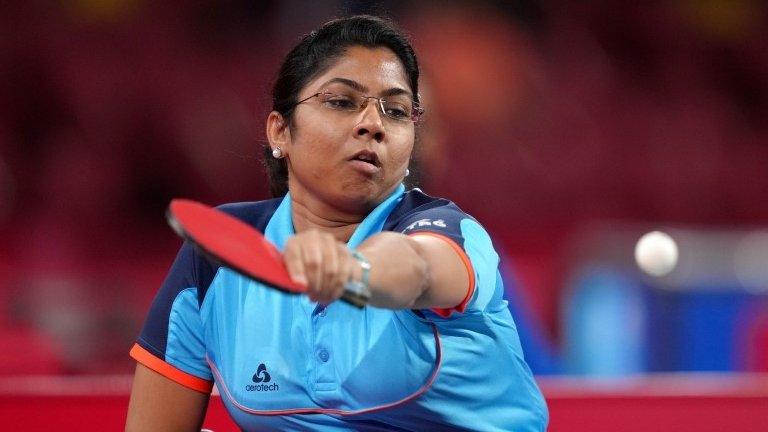
- Attribution
- Published1 March 2022
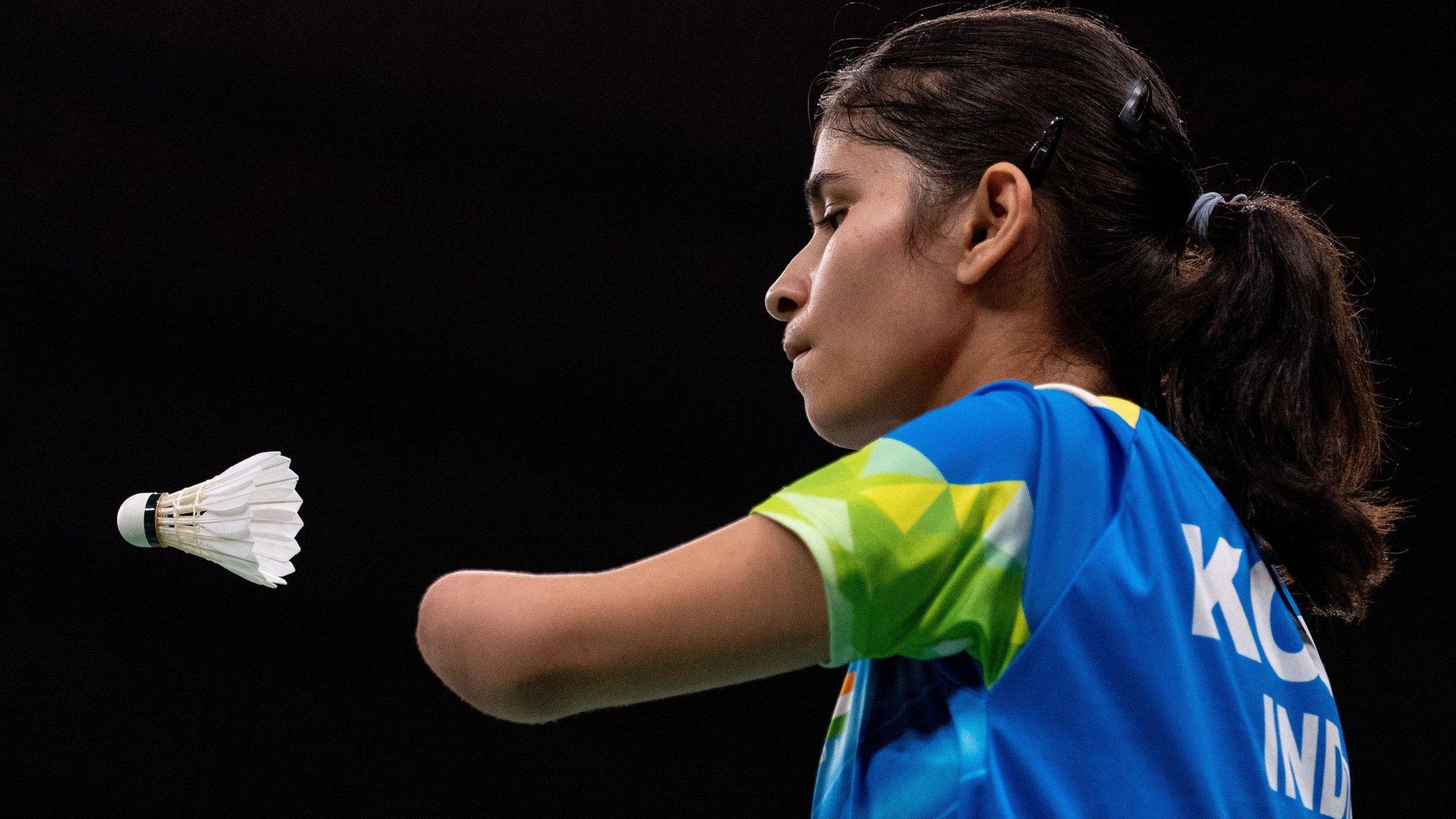
- Published14 September 2016
